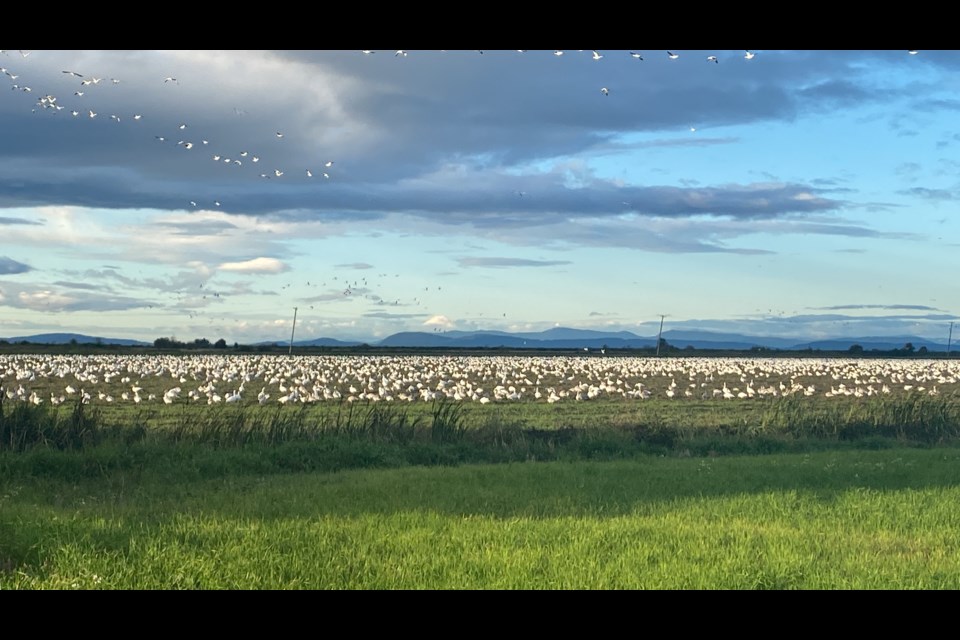Among the flocks of migratory geese descending on to Delta recently, seven birds have been found to have the deadly avian flu.
That compares with a total of 50 wild birds found so far to have the highly pathogenic avian influenza, in B.C., after testing began in October.
According to Environment and Climate Change Canada, most of those infected have been either Canada geese, cackling geese, snow geese or American widgeons, a type of small duck.
In addition to being found in waterfowl, the highly pathogenic avian influenza has also been found in wetlands areas in southwestern B.C., including Delta, where a third of the soil samples tested at the George. C. Reifel Migratory Bird Sanctuary in November showed the presence of avian flu.
The information is similar to information released Tuesday by provincial health officer Dr. Bonnie Henry, concerning the Fraser Valley teenager who caught H5N1 a few weeks ago.
Henry said the teen had the same strain of H5N1 avian flu as that currently affecting wild birds and poultry.
Testing at the BC Centre for Disease Control showed that the whole genome sequence of the virus most closely matches that of wild birds found in the Fraser Valley area, in October, and was not directly related to outbreaks at B.C. poultry farms, said a release from the provincial health officer.
"Our thoughts continue to be with this young person as they remain in critical condition, and their family,” Henry said.
The cause of the infection is still unknown.
The case is the first ever in Canada of a person contracting the disease.
However, no other cases have been found in people and it’s not spreading between people.
To minimize risk, Henry asks that people stay up to date with their flu vaccines, not to touch sick or dead animals or their droppings and not to bring sick animals into the home.
People also should keep their pets away from sick or dead animals, while dead birds can be reported to the B.C. Wild Bird Mortality Hotline at 1-866-431-2473, while dead wild mammals can be reported to the BC Wildlife Health Program at 1-250-751-7246.
Fraser Health will tell the City of Delta if or when it wants any notices posted about virus.
Avian influenza viruses occur naturally among wild aquatic birds and spread easily from bird to bird. Since 2022, there has been unprecedented global spread of avian influenza caused by the H5N1 virus, said the release.
There have also been reports of cases in humans, notably following exposure to infected animals. There are also reports of animals such as foxes and skunks being infected.
In B.C. and Canada, there have been no cases reported in dairy cattle and no evidence of avian influenza in samples of milk, said the release.


